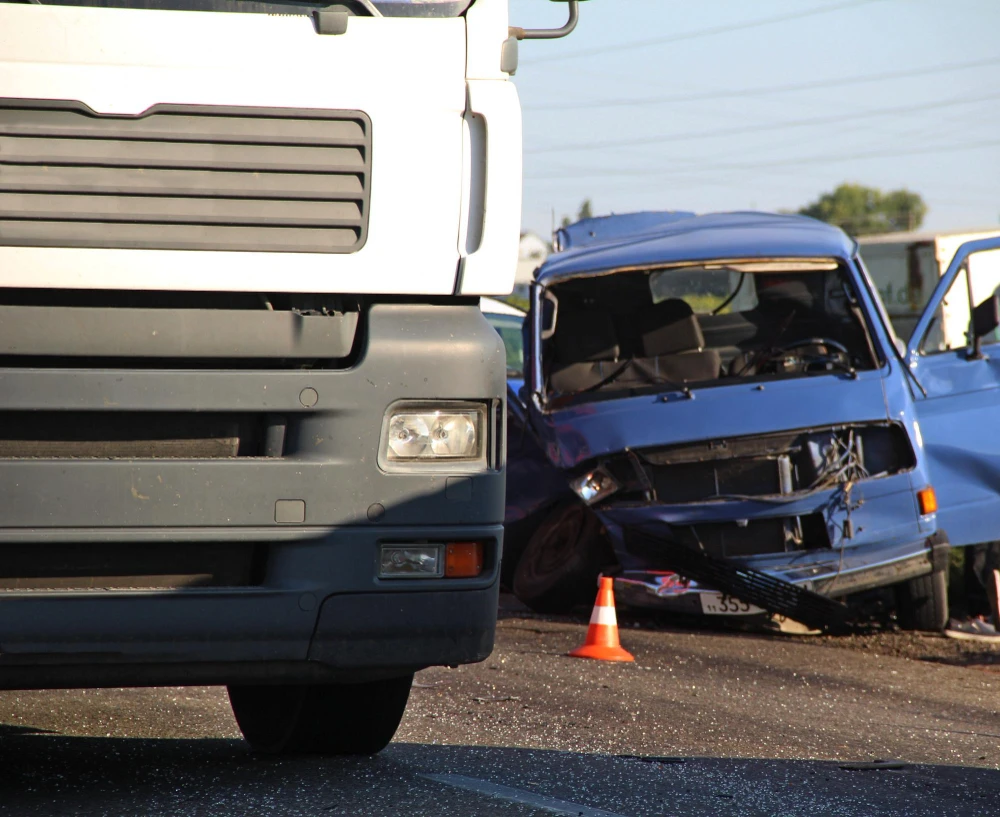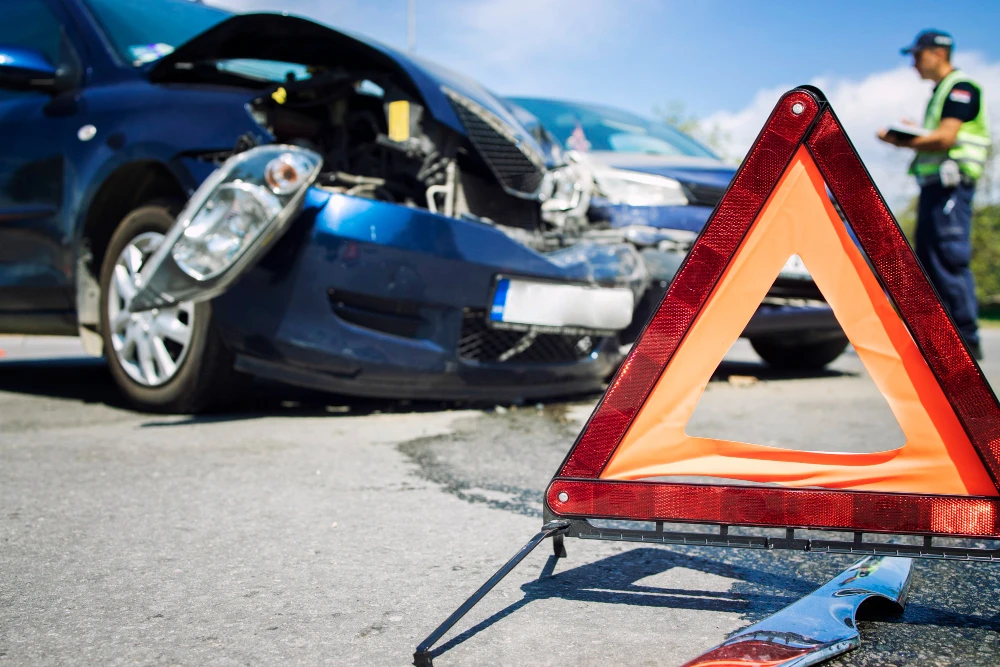Warning: E-Bike And Scooter Lithium Ion Batteries Pose Serious And Fatal Risk
Since their legalization three years ago, e-bikes and scooters have become a hot topic in New York, especially regarding safety concerns. Despite their impressive battery life and quick charging, serious safety hazards come with these vehicles.
As concerned and compassionate community members, Mokaram Law Firm is alarmed, aware, and vigilant about the significant dangers caused by electric bikes battery (e-bikes) and scooters and their lithium-ion batteries powering these modes of travel frequently used in highly populated cities.
In the wake of multiple fire explosions and tragic deaths, including a recent incident in New York that killed a boy and his sister in a house fire, along with serious injuries caused by spontaneous combustion and a lack of standardized safety laws and regulations, we want to shine a light on this hot-button issue that has unfortunately affected far too many families.
In this article, we will delve into the causes and consequences of lithium battery fires aiming to provide valuable information to those seeking help and guidance in such cases.
What are Lithium-Ion Batteries?
Lithium-ion batteries are revolutionizing the energy storage industry with their exceptional power capacity. They are ideally used in e-bikes and scooters due to their high energy density. These rechargeable batteries have three essential components:
- A Positive Cathode
- A Negative Anode
- An Electrolyte
The smooth flow of lithium ions between the electrodes during charge and discharge cycles enables the battery for electric bikes to store and release electrical energy efficiently.
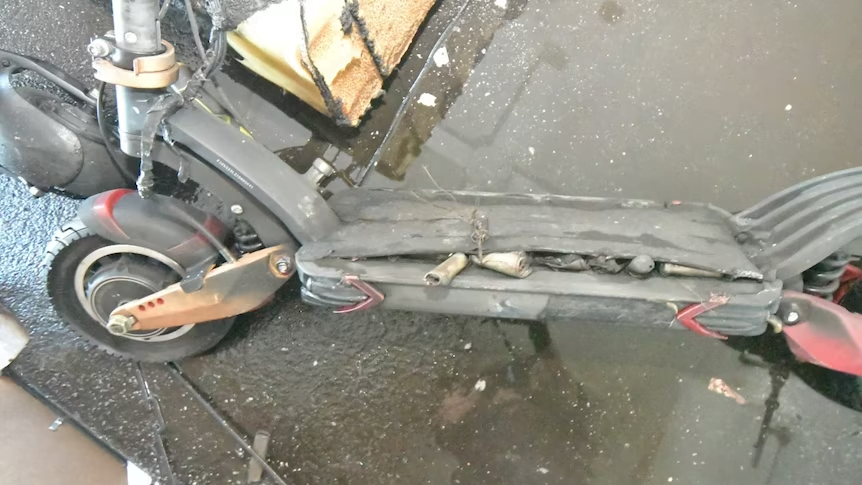
How Lithium-Ion Batteries Work?
Understanding how lithium-ion batteries work is essential to explain how and why they explode. When a battery undergoes damage, overcharging, or is exposed to high temperatures, it triggers a chain reaction known as thermal runaway. This causes a spike in temperature, releasing flammable gasses and potentially resulting in a fiery explosion.
“Once the fire starts going, everything inside the battery will burn,” said K.M. Abraham, a lithium-ion battery expert and former professor at Northeastern University.
Why Do They Explode?
Lithium-ion battery fires can be affected by environmental factors, leading to compromised functionality and safety. High or low temperatures specifically impact the battery’s capacity and can cause thermal runaway. To prevent mishaps, storing the battery at moderate temperatures and ensuring adequate airflow during charging for optimal heat release is essential.

Factors Contributing to Lithium Battery Fires
Several factors can contribute to lithium battery fires, including:
Manufacturing Defects
Poorly manufactured batteries or faulty components can increase the risk of fires.
Design Flaws
Inadequate design or engineering choices in the battery construction may lead to thermal runaway, causing fires.
Product Recalls
Some lithium ion battery dangers may be subject to recalls due to safety concerns, and failure to address such recalls promptly can result in fires.
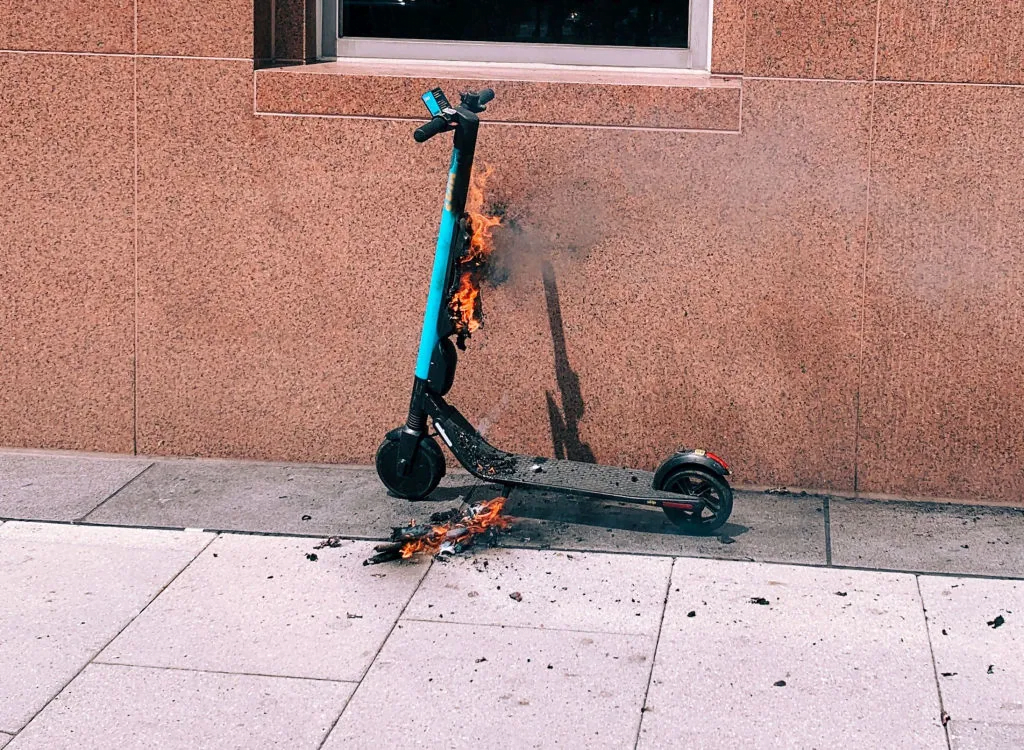
Major Risks of Lithium-Ion Batteries
Despite their advantages, lithium-ion batteries can pose serious risks if handled improperly. The following sections will delve into some of the most significant risks associated with these batteries.
Fire Hazards
The widespread malfunctions of lithium-ion batteries have caused rapidly spreading violent fires that can quickly engulf a home, people, and pets and cause death. Fire marshals have documented in studies published by Consumer Reports that these types of fires are extremely difficult to extinguish once the conflagration has occurred.
Fatalities Due To Overheating
These batteries can reach internal temperatures of 1,000 degrees Fahrenheit, causing the ignition of massive explosions. In 2022, the New York City Fire Department responded to over 200 e-scooter and e-bike fires, leading to six fatalities. In 2023, New York had 63 fires and five deaths caused by lithium-ion batteries. Specific, detailed safety standards need to be implemented now because lives are at risk!
Explosion Due To Overcharging
Do not take the hazards of overcharging a lithium-ion battery lightly. Overcharging can trigger the breakdown of the battery’s electrolyte, causing the creation of combustible gasses. Neglecting to control this gas buildup can potentially culminate in an explosion or fire. Hence, taking proper measures to prevent overcharging lithium-ion batteries is crucial.
Physical Burns & Property Loss
The consequences of a damaged and exploding battery can be severe, causing harm to users or resulting in a fire. Such battery malfunctions can result in injuries such as burns to the body or face and damage to personal or residential property. It’s crucial to handle batteries with care and understand the potential risks.
Environmental Impact
Lithium battery fires emit toxic fumes and harm the environment and nearby communities by releasing hazardous materials.
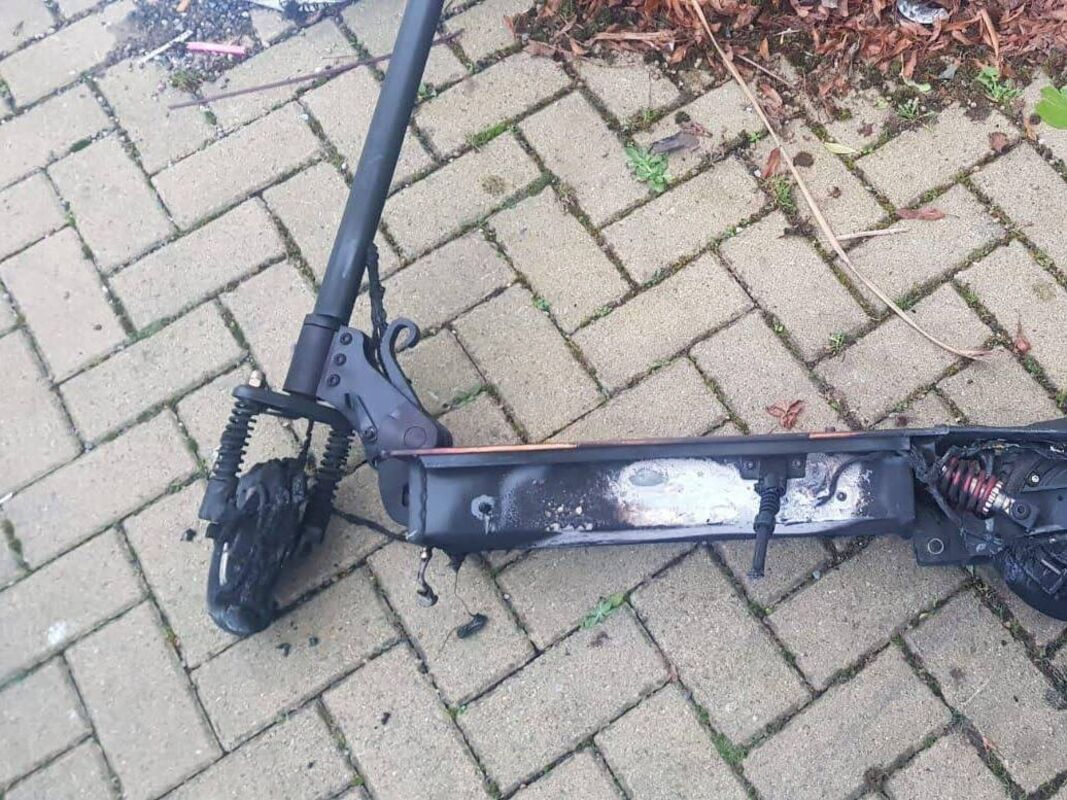
Board's Authority To Prohibit E-Bikes Due to the Potential Dangers
According to New York City real estate attorney Steven Wagner from Adam Leitman Bailey, P.C., lithium-ion batteries are known to pose a fire risk if mishandled. However, a board can modify the building’s house rules to regulate the use of e-bikes and limit potential hazards.
Lithium Battery Inspection & Liability
There need to be standardized inspections to halt the spate of deadly fires across the country. Federal legislation reform initiatives are already in process, including calls for possible product bans, and we strongly support regulation and safeguards to prevent these types of incidents from impacting any more families.
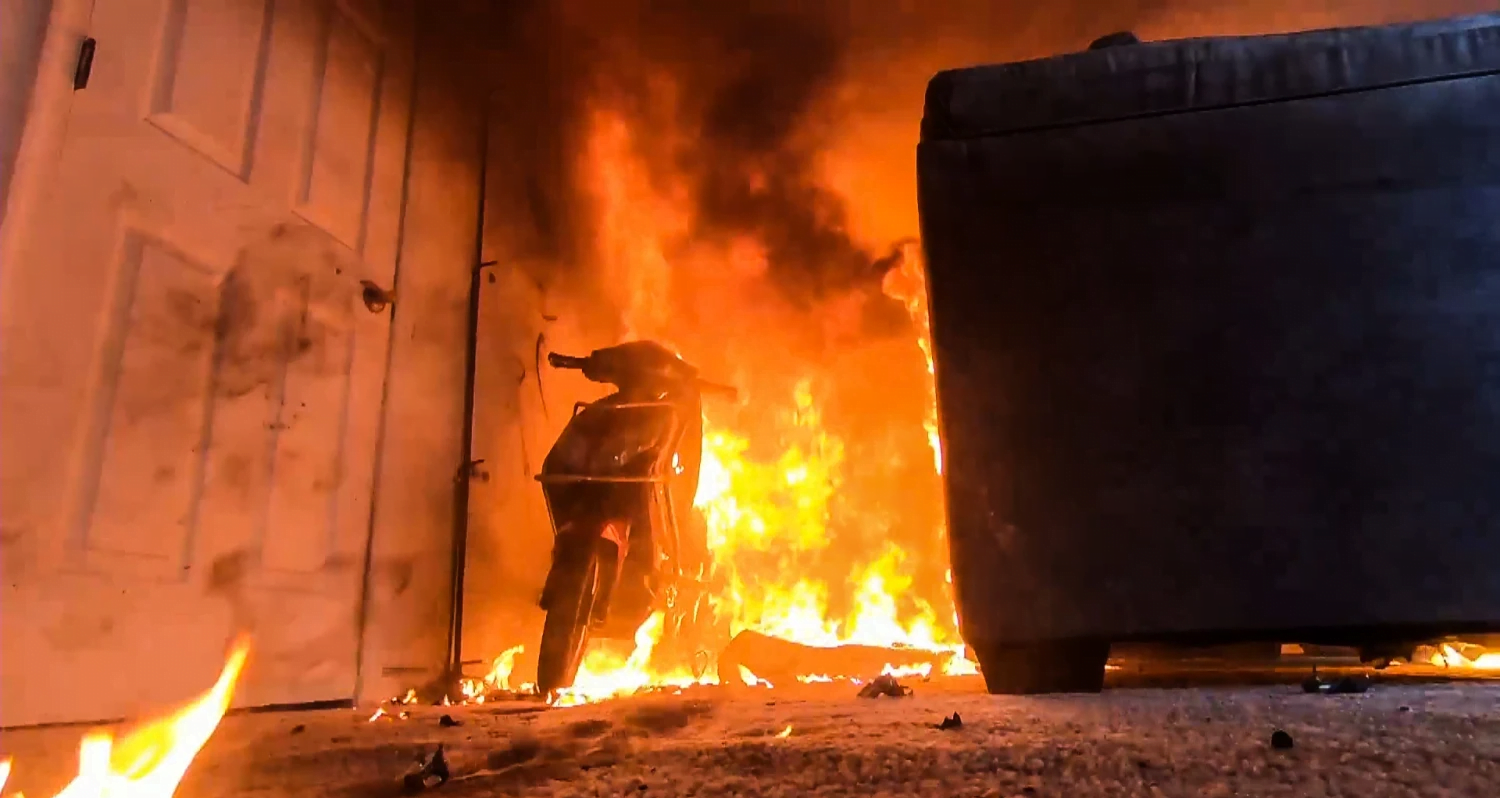
Mokarram Law Firm is here to help!
We at Mokaram Law Firm are passionate about holding these companies and distributors of e-bikes, batteries, and charging instruments accountable under the laws that govern our nation and communities.
The life saved by these measures could be your own!
If you or a family member have been affected by these dangerous lithium-ion battery fires, Please contact us at your earliest convenience at (281) 222-2222 for a free consultation.
We have the experience, legal expertise, and personal touch to help you and your family obtain justice.
Recent Posts
-
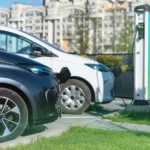 26 Jan 2024Electric Vehicles and Road Safety: Navigating the Impact on Car Accidents in 2024?
26 Jan 2024Electric Vehicles and Road Safety: Navigating the Impact on Car Accidents in 2024? -
 26 Jan 2024What are the three types of collisions that occur during a motor vehicle crash?
26 Jan 2024What are the three types of collisions that occur during a motor vehicle crash? -
 26 Jan 2024How are truck accidents different than car accidents?
26 Jan 2024How are truck accidents different than car accidents? -
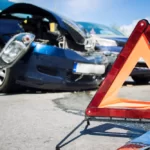 26 Jan 2024What is the difference between a car accident and a car injury?
26 Jan 2024What is the difference between a car accident and a car injury? -
 26 Jan 2024How a Houston Injury Lawyer Can Assist You?
26 Jan 2024How a Houston Injury Lawyer Can Assist You? -
 26 Jan 2024When Can Kids Ride in the Front Seat of a Car in Texas?
26 Jan 2024When Can Kids Ride in the Front Seat of a Car in Texas? -
 19 Jan 2024Risks of Running Red Lights in Houston, Texas
19 Jan 2024Risks of Running Red Lights in Houston, Texas -
 19 Jan 2024Estimating Compensation After a Houston Car Accident
19 Jan 2024Estimating Compensation After a Houston Car Accident -
 19 Jan 2024Conquering Driving Fears After a Houston Car Crash
19 Jan 2024Conquering Driving Fears After a Houston Car Crash -
 19 Jan 2024What is the most common injury in a truck accident?
19 Jan 2024What is the most common injury in a truck accident? -
 19 Jan 2024What is the traffic management system for safety in the USA?
19 Jan 2024What is the traffic management system for safety in the USA? -
 19 Jan 20245 Ways Personal Injury Laws May Change in 2024
19 Jan 20245 Ways Personal Injury Laws May Change in 2024
Categories
FAQ's
Frequently Asked Questions
Lithium batteries have a low risk of catching fire when not in use. However, they can still pose a fire hazard if they are damaged, exposed to extreme temperatures, or manufacturing defects.
Lithium batteries, when used and handled correctly, are generally considered safe. They provide reliable power for various devices and are widely used in consumer electronics. However, it’s crucial to take them with care, follow manufacturer guidelines, and avoid mishandling or damaging them to maintain their safety.
Lithium batteries can be dangerous if not handled correctly or damaged. Mishandling, improper charging, exposure to high temperatures, or physical damage can lead to thermal runaway, causing the battery to overheat and catch fire or explode.
Lithium batteries can catch fire due to a phenomenon called thermal runaway. This can occur if the battery’s internal components become damaged or experience extreme temperatures.
Starting a fire with a battery is not recommended and can be extremely dangerous. Batteries contain potentially hazardous chemicals, and intentionally starting a fire with a battery can lead to accidents, injuries, or property damage.
Lithium batteries can be dangerous due to their high energy density and potential for thermal runaway. If not handled properly, they can catch fire or explode, releasing harmful gasses and causing injuries or property damage.


